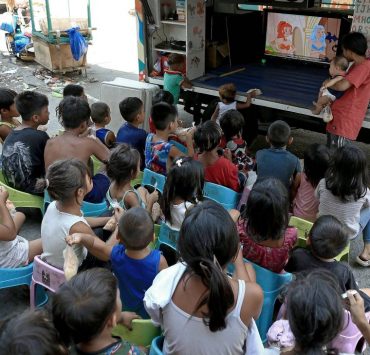Bank of America warns row with China may hurt PH economy
A further deterioration in diplomatic relations between Manila and Beijing caused by escalating tensions over the West Philippine Sea (WPS) could inflict some serious economic damage to the Philippines, according to the Bank of America (BofA).BofA in a new report flagged the potential impact of heightened tensions on Chinese trade, tourism and investments in the Philippines.
It retained its 5.4-percent growth forecast for the Philippines this year—below the Marcos administration’s tempered target of 6.7 percent—but warned that “any deterioration in Philippines-China relationship could exert greater drags.”
“China is still the Philippines’ largest trading partner and was the largest source of tourists pre-COVID. China has not been a major source of investments, however, but could possibly have been, as China offered substantial loans and investments in road, rail and dams that have not been pursued,” BofA said.
“That said, Chinese companies figure prominently in telecoms and power,” it added.
Soured ties
Tensions rose again in the vital waterway on Tuesday after Chinese Coast Guard vessels shot water cannons toward Filipino ships on their way to Panatag (Scarborough) Shoal.
This was the latest in a series of heated encounters and exchanges between the two nations since relations have soured under President Marcos, who has brought Manila away from Beijing and closer to Washington, China’s strategic rival.
It reversed the policy direction of former President Rodrigo Duterte, who cozied up to Beijing and turned away from not just the United States but also Europe, which was consistent in calling out his administration for alleged human rights abuses, especially in the pursuit of his centerpiece war on illegal drugs.
Investment ties have already started to be affected under the Marcos administration after the Philippines withdrew a number of applications for Chinese financing for big-ticket infrastructure projects, particularly railway projects that have yet to materialize since the previous Duterte administration set aside the Philippines’ claims in the contested sea in exchange for Chinese funding.
Trade, tourism
Should China launch an economic assault on the Philippines, BofA said the trade imbalance between the two countries could worsen.
The bank said the Philippines has had a “chronic” trade deficit since 2001 overall, and a “rapidly” growing trade gap with China since 2015. As it is, China—often referred to as the world’s factory—is the Philippines’ largest source of imports and a major market for Filipino export products.
”Indeed, 23 percent of the Philippines’ trade deficit is with China, and the prospect of slowing exports to China may worsen this imbalance, as China is likely to remain the largest source of imports for the Philippines,” BofA said.
It added that a deterioration of Manila-Beijing ties could hurt the inflow of Chinese tourists in the Philippines, where holidaymakers from China account for 22 percent of tourist arrivals.
“The decline in Philippines exports to China, tourism and investment from China appears worse than with the rest of the world,” the bank said.
“Increased tensions between Philippines and China over conflicting claims in the South China Sea could potentially have a meaningful impact on [the] Philippines’ economy if relations deteriorate further,” it added.
BofA earlier noted in a separate report that the slow return of Chinese tourists has been holding back travel recovery in the Philippines.
It said the Philippines, China, Hong Kong and Taiwan were the “laggards” in Asia as tourist arrivals in these destinations have yet to reach prepandemic levels.
‘Not entirely reliant’
Secretary Arsenio Balisacan of the National Economic and Development Authority said earlier that the government’s move to safeguard the country’s territorial rights in the West Philippine Sea “should not be misconstrued as an effort to undermine our economic relations.”
He also said that the Philippines “places great importance on its economic relationship with China” and that “our position on the South China Sea dispute need not negatively affect our economic ties.”
Shanice Espiritu, a public policy and governance specialist at international think tank Stratbase ADR Institute, shared the same view with Balisacan.
“Our economy is not entirely reliant on our relationship with China, and that other countries continue to hold stronger economic ties with the Philippines,” said Espiritu, an expert in transparency initiatives and governance in Southeast Asia.
“In relation to the West Philippine Sea, the administration has made it clear that the WPS is not the entirety of our relationship with China, and economic relations with them will continue,” she added. INQ

















